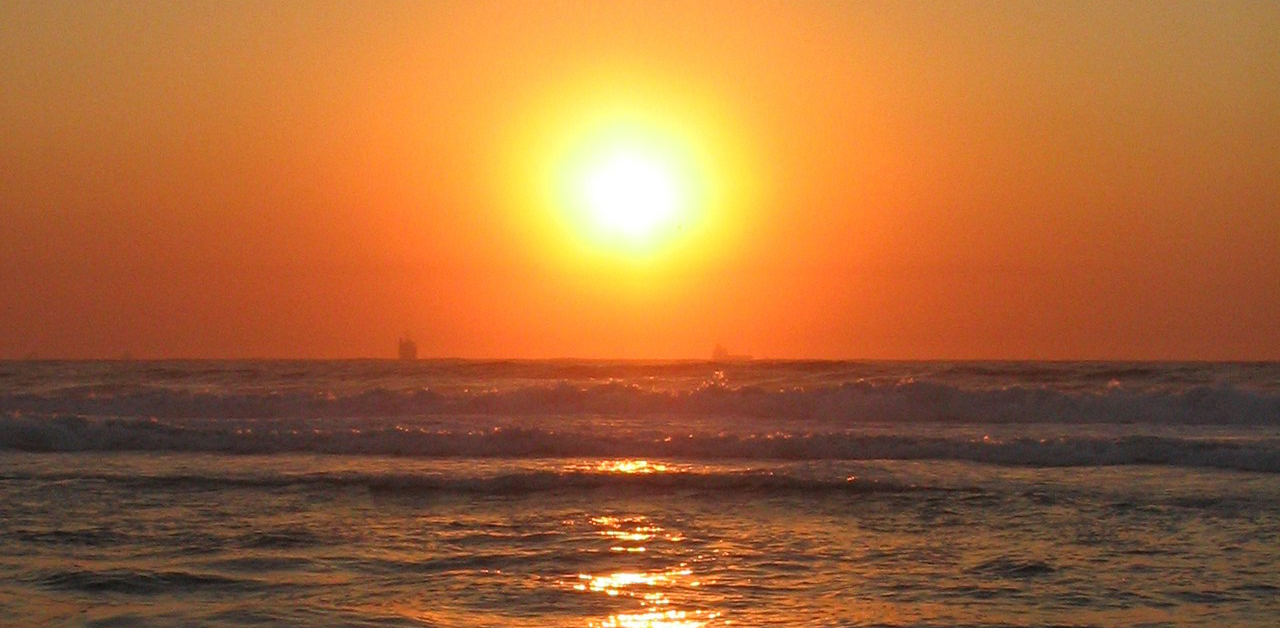
© Jacqueline Maurice, freeimages
Many people consider only Genesis 1–2 when they think about the Bible and creation. While the creation accounts in Genesis 1 and Genesis 2 are certainly important, they represent a small portion of the biblical message of creation For example, there are a multitude of descriptions of creation in Psalms 8, 19, 33, 74, 104, and 148. God’s dialogue with Job is especially rich in this regard, In fact, in his book Faith & Wisdom in Science, Christian physicist Tom McLeish proclaims Job 38–41 to be the most insightful biblical text on creation and science.
Biblical scholar William P Brown also urges us to look beyond Genesis In The Seven Pillars of Creation, Brown examines seven traditions or ways of creation in the Old Testament: Genesis 1:1–2:3, Genesis 2:4b–3:24, Job 38–41, Psalm 104, Proverbs 8:22–31, Ecclesiastes 1:2–11 and 12:1–7, and Isaiah 40–55. Just as we would hardly consider ignoring any of the four gospels (Matthew, Mark, Luke, and John) in learning about Jesus, Brown argues that we should not dismiss any of the “seven pillars of creation” if we wish to have a fuller understanding of God’s creation. Two additional Old Testament passages describing God’s creation are Proverbs 3:19–20 and Isaiah 65:17–25. Clearly there is far more to be found in the Bible about creation than just the first two chapters of Genesis!
The New Testament also offers many voices on creation in John (1:1–10 and 17:24), Acts (17:24–28), Romans (8:18–25), 1 Corinthians (8:6), Colossians (1:15–17), Hebrews (1:2–3), 1 Peter (1:20), and 2 Peter (3:3–16), as well as the new creation in Revelation (21–22). While there are a wide variety of emphases and writing styles in all of these Old and New Testament passages, they are united in asserting God as creator. Any biblical theology of creation needs to consider these as well as the Genesis accounts…
The Bible is primarily concerned with questions of ultimate meaning and purpose, revealing who God is and how we are to relate to him. It is a story of God’s relationship with his people and his creation, not a mechanistic explanation of the universe or a science textbook. Scripture affirms that God created and sustains the natural world; Scripture does not tell us how God does all of this. In his 1615 Letter to the Grand Duchess Christina, Galileo made famous the notion that the Bible teaches us “how to go to Heaven, not how the heavens go.” For example, the Bible does not insist on a geocentric model of the solar system (with the earth in the center), nor does it insist on a heliocentric model (with the sun in the center). Either is compatible with the Bible, regardless of what the individual writers of Scripture believed about it. This is because the authority of God’s Word is based on its message to its original audience, not on our modern scientific interpretations of the text. Scripture is not science, nor is science Scripture…
Since God created the world and gave us the Bible, both nature and Scripture should be reliable sources of truth with no inherent conflict between the two. However, investigating nature and reading Scripture necessarily involve some level of interpretation (and likely misinterpretation), so we should be careful not to overextend the claims of either. Some truths are more directly addressed in the Bible, and others are found in nature. When we encounter apparent tension between science and Christianity, we should not respond with fear but with an eagerness for dialogue and for enriching our faith with deeper understanding. Historians of science and religion affirm that there has been a strong Christian tradition of deep and respectful engagement between faith and science. The idea that a conflict exists between them has been grossly exaggerated.
A close examination of the philosophical foundations of science and of Christianity reveals them to be remarkably harmonious. For example, scientists and Christians believe that nature is consistent and comprehensible, although not necessarily intuitive (so we need observations and experiments). Both groups concur that studying nature is a good and worthwhile endeavor. These philosophical beliefs cannot be proved scientifically, revealing that some level of faith is foundational to science itself…
David’s story (Chemistry Professor, Harvey Mudd College, USA) – My navigation of science and faith has changed a lot over the years. At first I kept the two separate out of fear. I gradually opened up to exploring science and faith personally once I found role models whose faith looked like mine and whose scientific integrity I trusted. My eyes were opened to new perspectives, I found joy in the journey, and I eventually became professionally engaged in helping others integrate a robust Christian faith and sound science. My goal is not to convince others to adopt my position, but to have respectful dialogue that honors Scripture and takes science seriously.
Kate’s story (IVCF Campus Minister, USA) – In studying Scripture and combatting my biases against science based on fear, I’ve realized how much more Scripture tells me about God and the world and how much less it tells me about science. I’ve come to trust Scripture much more deeply and become less defensive and nervous when people raise questions or issues. For example, I used to read Genesis 1 and be disturbed by conflicting scientific creation accounts. Now when I read Genesis 1, I see a beautiful poetic description of God’s creating. I see how the Lord is shown to be good, powerful, and creative. I see the incredible relationship God established with humanity. And it leads me to worship.
I’ve also come to appreciate science more and marvel at the complexity of the world, which gives me insight into the creative, powerful God whom I serve. For example, at a recent lecture on genetics, I found myself in awe of God as I listened to the description of human, chimpanzee, and gorilla DNA. Such lectures used to produce anxiety. Now they are places to worship God. May Christ continue to lead you deeper into worship as you learn of the Lord through Scripture and science.
 This post was a series of extracts from Jesus, Beginnings, and Science: A Guide for Group Conversation, by David A Vosburg and Kate Vosburg, Pier Press, 2017. $12.95, 101 pages. (UK suppler: https://www.amazon.co.uk/Jesus-Beginnings-Science-Guide-Conversation/dp/0996991514/).
This post was a series of extracts from Jesus, Beginnings, and Science: A Guide for Group Conversation, by David A Vosburg and Kate Vosburg, Pier Press, 2017. $12.95, 101 pages. (UK suppler: https://www.amazon.co.uk/Jesus-Beginnings-Science-Guide-Conversation/dp/0996991514/).




